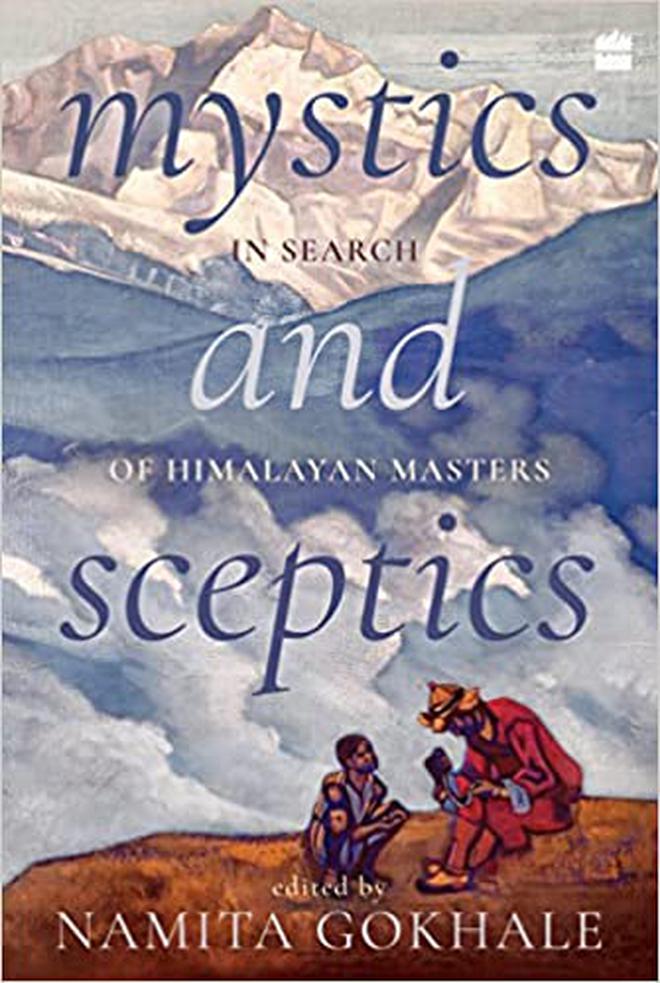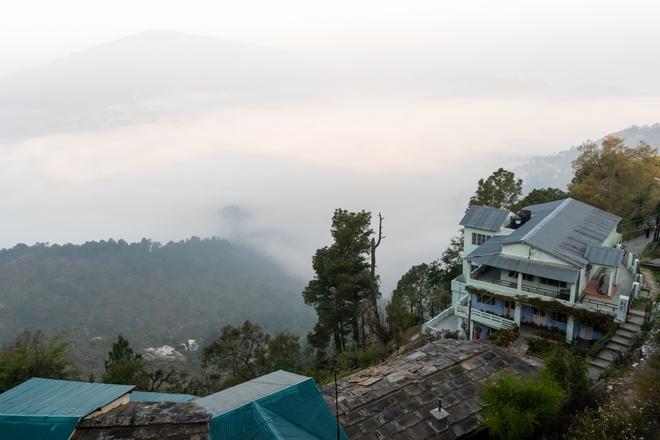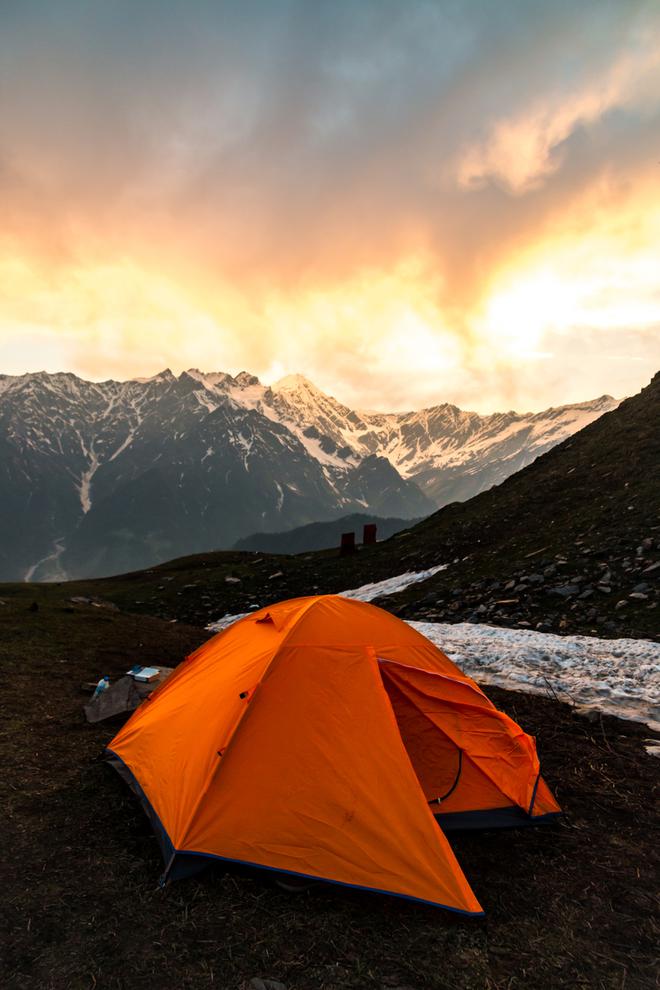
The essays in Mystics and Sceptics: In Search of Himalayan Masters, edited by Namita Gokhale, look at both the tyranny and beauty of life and bring alive the spiritual resonance of the Himalayas. A non-believer may read it with a pinch of salt; but the book is fascinating and helps to fathom why people take a leap of faith. A diverse set of writers, including diplomats, journalists, authors and seekers, give an insight into experiences of wanderers and spiritual gurus. In an interview, Gokhale explains what led her to the Himalayas and the reasons why she thought of a book of essays on the mountains.

Most of your books are enthralling narratives about the bounteousness and mysticism of the Himalayas.
My childhood was spent in the Kumaon hills and a love of the Himalayas is, therefore, a part of much that I write. However, I have written 21 books (including anthologies) with the 22nd in the pipeline and not all of them are about the mountains. Laughter, irony and humour are equally a part of my repertoire; urban spaces interest and intrigue me. My debut novel, Paro — Dreams of Passion, was set between Mumbai and Delhi; it was published almost 40 years ago and remains wickedly funny.

What prompted you to curate the latest anthology?
Curating this anthology was important to me because I wanted to discover and add to my own learnings in the process of compiling it. It was in that sense a journey and a quest. I wanted to steer clear of the romanticised and hyperbolic spirituality that is sometimes encountered in this genre. A healthy dose of scepticism is the surest foundation for mystical enquiry.
The book contains well-researched essays on the lives of real wanderers/seekers. But, it does require a leap of imagination to understand and accept the deeper mysteries behind their stories.
The stories and encounters in this anthology might possibly startle and disorient those brought up on a staple of so-called ‘rational’ thought. However, let’s keep in mind that even in the realm of technology the magical changes in the material and virtual world would have required what you call ‘a leap of imagination’. Everything requires a leap of imagination, and a spiritual realm does indeed exist, though not everyone is wired to access it.

Rationalists and non-believers look for logic... For instance, you have written about the enigma of Chamatkari Neem Karoli Baba — how an engine driver could not restart a train after he was evicted from it. Do you think beliefs often develop unconsciously and transform over time?
This anthology was not written to convince rationalists and non-believers, for whom I have the greatest deference and respect. The book is just that — a collection of essays by respected theologists, scholars and spiritual practitioners, who are believers and non-believers, about their encounters and experiences.
Whether a reader believes in or questions divinity or religion, the chapters in the book at one level, have the power to connect with oneself. Would you say the book has the potential to be life influencing for a reader?
In my introduction to Mystics and Sceptics, I write, “In one’s sojourn across the Himalaya, it is best to be cautious in chance encounters, for it is impossible to decipher if one is encountering a saint, a siddha, a madman, or a charlatan.” This was the advice given by an intensely religious man, an elderly tantric and a scholar, when I was young, and I have kept this counsel close to my heart.
“The gods come to us in many disguises,” he told me. “They may come to you with a boon, or they may leave you with a curse, if you do not conduct yourself in the right way.”

What are you working on next?
I have recently finished work on a novella. I like to work on two and sometimes even three book projects over a year, pacing them out to my time and concentration span. I find myself increasingly drawn to writing short stories.
Mystics and Sceptics: In Search of Himalayan Masters ; Edited by Namita Gokhale, HarperCollins, ₹699.
soma.basu@thehindu.co.in







